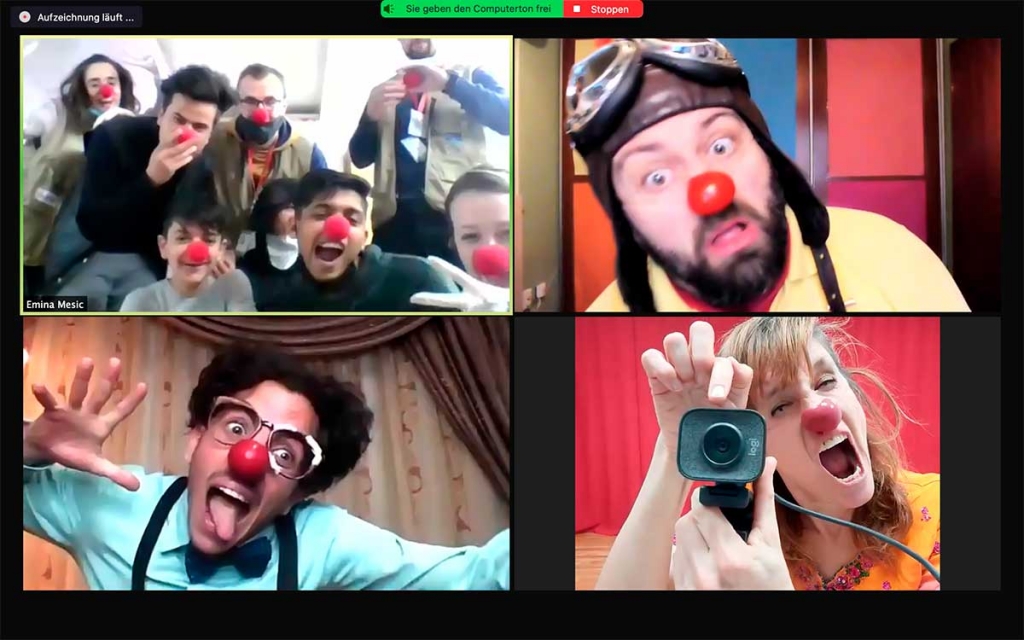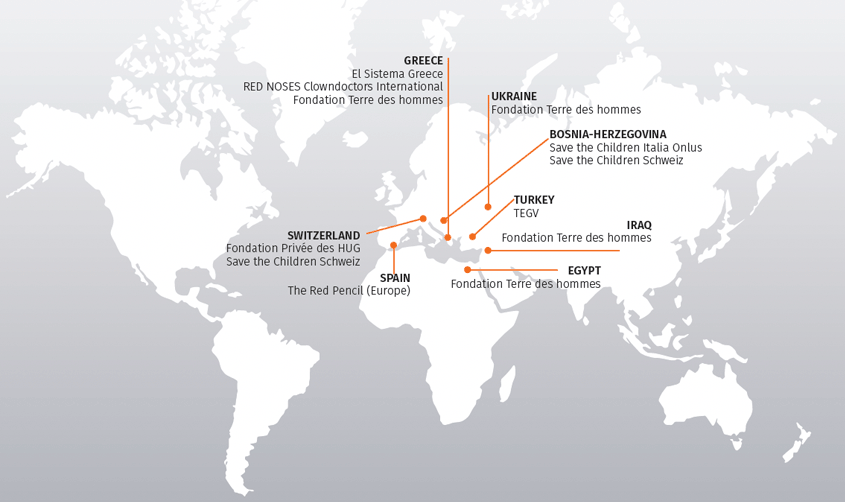During 2020, the temporal and dialectical caesura between a pre/post COVID-19 world has significantly impacted our lives, making us lose all points of reference, both on the existential and phenomenological level, profoundly changing our perception of “the other” as well as our relationship with “the other”, in form and substance, and introducing a reality made of impermanence and indeterminacy, whose emotional wounds cannot be traced back to categories/models of the past.
A similar fate befell the philanthropy sector, which, for the first time, had to face a double challenge, with ontological contours: to act in emergencies and respond reactively.
The frenzy of a routine made up of (inter)exchanges, travels, flights, interviews, trainings, conferences, events, shows, festivals, interactive exhibitions, artistic and didactic workshops, field missions, applause… has, de facto, surrendered to a(n) (a)normal slowness and silence which, inviting to a deep reflection, drew the following questions: How to (re)think a new normality? How to continue to resist/exist? How to adapt to the changes without failing in one’s objectives and to ensure the safety and health of the operators of the “Terzo Settore” in their different places of action?
In its attempt to respond to these questions in a targeted and timely manner, the philanthropy sector has shown great creativity, imagination and resilience, inaugurating new modalities of digital intervention and new models of online projects which, in fine, improved the qualitative impact on beneficiaries, stimulating their enthusiasm and increasing the reach of the activities originally planned in the field and in presence
The COVID-19 caesura has, de facto, also impacted the daily workload of Fondation Alta Mane which, however, in a resilient manner, has been able to adapt to the change of pace dictated by the pandemic, responding to the project changes developed by the partners with flexibility and dynamism, ever ensuring operational freedom, thus enabling the partners to maintain constant focus on structural costs and safeguard the human resources needed to develop and implement the projects, in the dual and hybrid mode online/offline.

During the past year, Fondation Alta Mane has primarily focused its intervention on managing the impact of the pandemic on the full operativity of its partners and the projects implementation plan.
In line with its mission, the Foundation has enhanced a kind of “strategic” support, beyond the financial one, which stimulated an empathic cohesion with its partners and opened the door to a mutual process of reflection and growth, as well as to the activation of renewed synergies and project activities.
In compliance with the strategic renewal initiated in 2017, Alta Mane, in 2020, supported several “systemic”, integrated and enabling projects, all responding in equal measure, to the Foundation’s new operational intervention model. That is to say, a more appropriate model to respond, in a timely and targeted manner, to current challenges, especially in migratory and humanitarian contexts; a more incisive model in terms of impact, tending to a more sustainable and effective support and limiting its priority intervention to the migratory contexts in Switzerland and Europe, with particular reference to Greece, the Balkans (Bosnia-Herzegovina) and Spain, which are the countries most dramatically affected by the massive arrival of new migratory flows.
In 2020, this kind of support allowed the Foundation, on the one hand, to consolidate and strengthen its relationships with partners of excellence, with whom a profitable, constructive and fruitful long-standing collaboration has been established through the years, such as Save the Children, Red Noses Clowndoctors International and Fondation Terre des hommes. On the other hand, it allowed the Foundation to open new project perspectives aimed at strengthening and diversifying, from an artistic and geographical point of view, Alta Mane’s intervention in the Mediterranean, in migratory and emergency contexts, inaugurating a collaboration, in the social and development sector, with two new partners: El Sistema Greece and The Red Pencil Europe.

With regard to co-partnerships, in 2020, the Foundation has decided to temporarily suspend the co-partnership agreements managed by Fondazione Alta Mane Italia (AMI). This decision, already taken in 2019, and confirmed during the past year, is in line with the Foundation’s current strategic and programmatic repositioning, and also responds to the process of in-depth reflection and feasibility study, still underway, for the positioning of AMI in an international perspective and for the possible identification and activation of new partnerships, with a new geographic location in Africa and the Mediterranean, aimed at improving the living conditions of the most vulnerable young people in situations of great socio-economic hardship and often victims of prolonged conflicts.
In relation thereto, reminder is given that these are three-way contracts between Fondation Alta Mane, AMI and the beneficiaries (Partners), according to which:
- Alta Mane Italia supports the Partners during the start-up/implementation of their projects throughout varied and complex social or hospital conditions, monitoring and assessing the sustained activities as well as the future conditions of sustainability of the Partner;
- Fondation Alta Mane supports the aforementioned beneficiaries through donations preceded by the usual verifications.
The sector of intervention remains the use of art in situations of extreme social marginalization and hospitalization of young people due to serious pathologies.
DONATIONS
In addition to the above-mentioned organizations, in 2020, Alta Mane continued to support some of the Foundation’s long-standing partners, such as: Fondation Privée des HUG, in Switzerland, renewing its support to the music-therapy pilot project for children with congenital heart diseases and chronically ill hospitalized at the Hôpitaux Universitaires de Genève (HUG); and Fondation TEGV, in Turkey, supporting the three-year art educational programme designed to develop innovative and interdisciplinary educational models to be replicated and scaled-up nationally across the country.
NEW DONATIONS
Furthermore, the Foundation started a new collaboration with El Sistema Greece, in Greece, to support a music education project for minors on the move located in the Skaramagkas and Eleonas Refugee Sites (Attica Region, Athens); and with The Red Pencil Europe, in Spain, to support an art therapy project for migrant, refugee and asylum-seeking children and youth located in the Reception Centers and Independent Living Houses in Málaga (Spain) managed by The Spanish Red Cross.
In brief, 10 projects received direct donations from the Foundation, out of which 3 Partners were based in Switzerland (Geneva, Vaud and Zürich Cantons) and 5 abroad (Austria, Belgium, Greece, Italy and Turkey).
